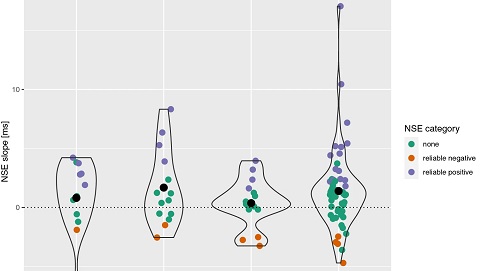Prevalence of cognitive phenomena
Does the effect we observe at the group level accurately describe all individuals?
This collaborative project comprising researchers from Loughborough University, and colleagues from Germany, Luxembourg, Belgium, and the US looks at whether the effect we observe at a group level (e.g., that it is faster to compare numbers 1 and 5 than 4 and 5) is reflected at the individual level (i.e., we can see it in all the participants we test).
Traditionally, experimental psychology was focused on describing the group level effects / phenomena. Differences between individuals have been treated as noise and ignored. In past years we developed some methods to look whether these effects are reliably present at the level of a single participant. Applying these methods, we discovered, that some group-level phenomena are driven by a minority of participants revealing them, and there are quite some participants, who are revealing a reliable effect in the opposite direction than the group-level pattern. At the same time, other phenomena are reliably present in a majority of individuals. We think that this approach can give us some novel insights into the nature of the phenomena we can look at. We have been focusing on numerical cognition, but this logic can be applied to virtually any domain of cognitive, educational, and developmental psychology.
Related information
- Preprint of the main paper
- Pre-registration of the ongoing study
- One of the published papers using this approach
- Poster we presented at the Society for Improvement of Psychological Science (SIPS)
- A poster presented at the conference in Bressanone, Italy in 2020
- Invited talk at the Department of Psychology, University of Tuebingen

